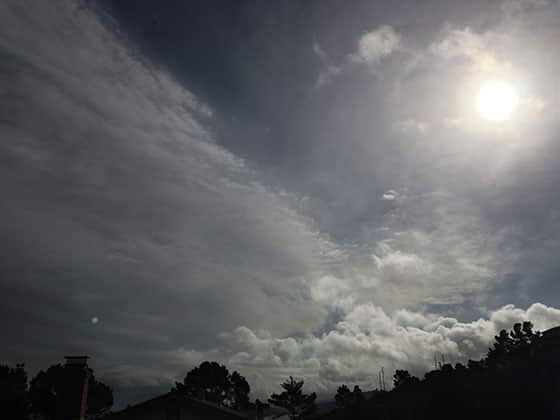alchemy as the proces of unlearning
by Noor Al-Ayin

Many, including myself, step into alchemy and the hidden arts not only because of an emotional attraction but also because of a very rational desire to learn more, perhaps even to find the meaning behind the reality we face every morning. And one of the first things the aspirant learns on this path is the ancient adage, "Know Thyself". Every book on the occult or in the new age section seem to throw this phrase around, almost in a haphazard manner. However, the astute reader will ask, "What is the quality of this knowing?" Is it knowing my likes and dislikes? Is it cataloging and labeling these likes in order to better define myself? If this is the case, the world as it is, seems obsessed with knowing the self, Facebook, Spotify, Amazon, and similar sites offer countless labels, groups, and tags with which we can define who we are and connect with others who have similar tastes based on our purchasing habits, political views and countless other measurements of "self". But in truth, this is the exact opposite of the understanding we seek. This is merely a case of the dog chasing its tail.
Similarly, is it a "head" knowledge we seek? Perhaps an equation or philosophy we can impress upon people at dinner parties, a belief we can convert others too? Or is it a secret only we are privy too, a knowledge with which we can feel superior to those around us? The answer is a resounding "no" to all of the above. For another old adage, an equally important one, tells us, "Our Stone is One, to which we add or subtract nothing, only removing that which is superfluous".
It is here that we must pay close attention - our Stone is One, to which we add nothing nor remove nothing. What does it mean? In the case of modern man, who is besieged by a storm of information, it means by cataloging, categorizing and using our visceral experiences in an attempt to find who we really are, we are merely adding layers of confusion to an already inadequate state of being and this is the exact antithesis to the understanding we seek to gain through Alchemy. Put simply, the self knowledge the alchemist seeks is not one which is defined by the external world and her storm of opinions, discoveries, feelings and thoughts, it is that which lies beyond the sensible, it is something we cannot share with friends and family in an intellectual manner over wine and cheese. It is not something which will feed our ego, in fact quite the opposite, it is that which lies beyond the world and at once is the mechanism of the world, in this way it is very much a paradox of the highest order and this paradox is what prevents it from being exploited.
There is nothing to add, therefore there is nothing to like or dislike here, neither is there anything to learn, for with the correct instruction and a bit of patience, what we quickly realize is everything we think we want, we already have. We contain the vessels, we contain the principals we seek, we contain the understanding which brings a peace beyond the intellectual understanding of peace, the task we are faced with is separating and purifying these principals only to re-combine them into a harmonious Unity, which, performed with the proper praxis allows the flowering of the supra-sensible to occur within this new found Unity State.
So, what are these principals, in the simplest of terms we can say they are, a conscious mind (which you are using to read this essay), an unconscious mind (which sent you a plethora of dreams last night), and the tension we feel when the two are in disagreeance, and this latter state of disharmony more or less defines the plight of modern man. What makes alchemy a science, is that the above is something we can actively experience and understand, it is more than theory. And the key we seek ultimately lies in a peculiar quality of understanding, a knowing which is not taught in universities, it has nothing to do with the haphazard collection, memorization and cataloging of information. If we are not to add anything, then the answer must be in the subtractive, but we do not subtract from the Stone itself - only that which has been added to the Stone artificially - this being the concepts, experiences, institutions, and world views our societies, teachers, and families inadvertently initiated us into - this is the process of un-learning.
In conclusion, we can answer a resounding yes to the following; yes, the alchemist seeks intuition, but it is an intuition beyond the intellectual concept of what intuition is. Yes, he seeks knowledge, but this knowledge is gnosis, a peculiar sort of direct knowing which quietly grows like a seed in the unconscious. And yes, he seeks wisdom, but not the wisdom of the world, he instead seeks the wisdom of that which is beyond the whims of time, space and trends of culture. Therefore, in addition to, "Man, Know Thyself", we can also say to the modern reader, "Man, unlearn what you think you know".